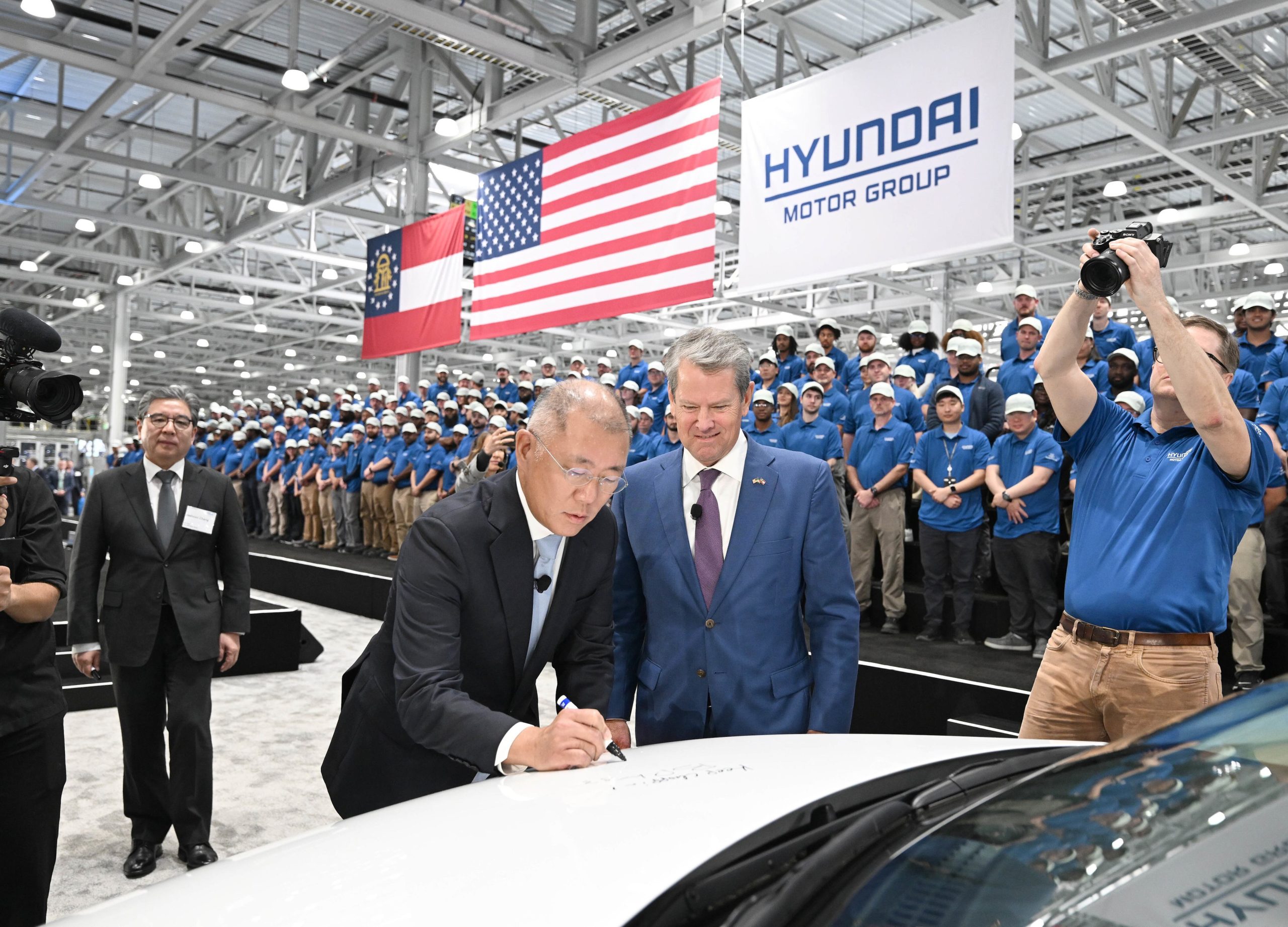Hyundai Motor plans to increase vehicle prices in the U.S. effective from June 2, due to the new 25 percent tariff on all imports introduced by the Trump administration, sources close to the situation have revealed.
This step would be the first instance where the South Korean automaker changes its prices due to the protectionist policies introduced by President Donald Trump towards the end of March, effective from April 2nd. Although the administration provided a 90-day delay for tariffs applied on a nation-by-nation basis, the automobile tariff falls under product-specific duties and has consequently come into force immediately.
Hyundai committed to keeping U.S. prices stable until June 2, indicating they would watch market trends and decide their next steps after this date. Recently, the company informed certain employees through an internal communication that they plan to “assess when to implement a price hike starting in June to reduce tariff effects.” They also mentioned that modifications in production levels based on geographic regions and specific car models have been initiated as preparations for possible changes in customer preferences.
Tolong support kita ya,
Cukup klik ini aja: https://indonesiacrowd.com/support-bonus/
Jose Munoz, the worldwide president and COO of Hyundai Motor, previously stated that the corporation wouldn’t hike up prices right away, establishing a strategic cushion until June 2nd. During the firm’s quarterly profit announcement last month, Executive Vice President Lee Seung-jo echoed these comments, indicating that the carmaker would “assess circumstances and determine whether to implement a price rise following June 2.”
Until recently, the firm managed to maintain stable pricing largely due to substantial stock levels within the U.S. market and optimism regarding potential tariff exemptions or modifications negotiated by the South Korean government ahead of the deadline. Nonetheless, these anticipations have waned over the past few weeks as stocks in the United States have diminished and concerns about ongoing trade discussions have escalated, particularly considering the upcoming South Korean presidential elections set for June 3rd. Analysts suggest that should new talks commence, they would probably not occur until after the subsequent administration installs a new negotiation panel.
An uptick in prices within the United States could potentially have an adverse effect on Hyundai’s sales figures in this key international market. While the company assembles gasoline-powered cars at its manufacturing site in Alabama and constructs electric vehicles at its specialized EV production hub called HMGMA—Hyundai Motor Group Metaplant America—the majority of their hybrid and conventional model exports continue to originate from facilities located in South Korea.
In response to a projected decrease in U.S. market demands, Hyundai is modifying the volume of regional productions. The company has redirected shipments intended for the United States from its Korean facilities to other countries and decreased the manufacturing of specific model lines within these areas to sustain equilibrium across the board.
A high-ranking auto industry official stated: “Due to slow electric vehicle sales, Hyundai has stopped producing the Ioniq 5 and Kona EV models at its Ulsan facility. The company aimed for a total output of 4.23 million cars this year—1.88 million within South Korea and 2.35 million overseas—but hitting this mark seems progressively more challenging.”






